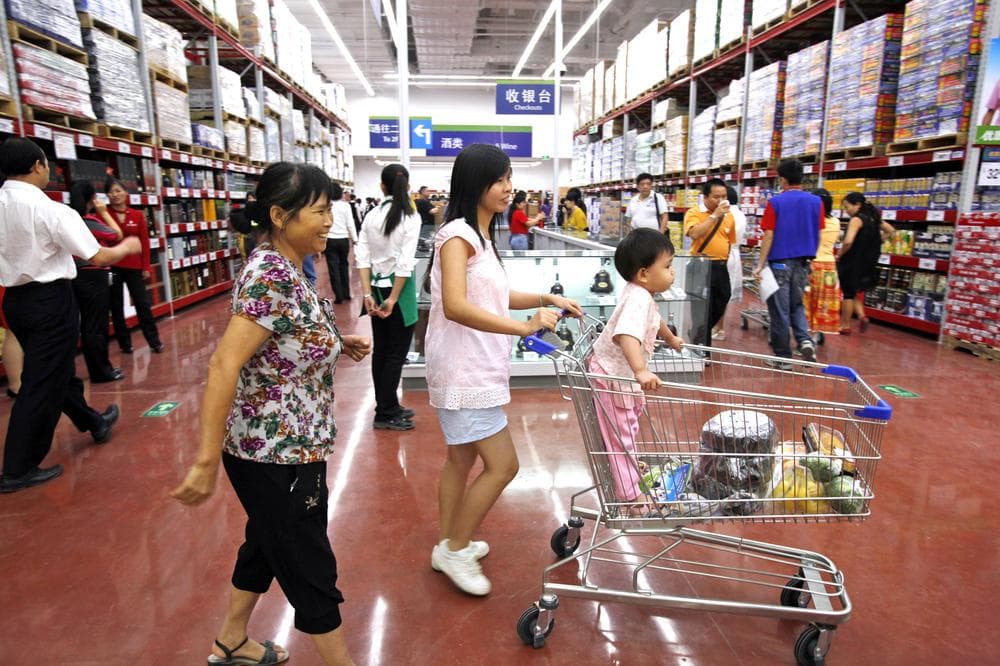Advertisement
Walmart Pushes For A Greener China

Digest this-- Walmart is getting credit for pushing China towards sustainability. Or as Walmart's CEO told a room full of Chinese vendors in 2008, "A year from now, each and every one of you will be more socially and environmentally responsible."
Yes, this is the same Walmart that's accused of littering the American landscape with box stores, and bullying vendors into lowering prices and costs.
China expert Orville Schell writes in the Atlantic that Walmart and China are conducting a "bold experiment in consumer behavior and environmental stewardship that will be critical to the fate of the planet's environment."
Schell says that people in China have been drawn to big chains like Walmart after rampant food safety scandals, like the melamine-tainted milk of 2008 that left at least 6 dead and 30,000 sick.
"It's the brand names in China that people trust, because they know that companies like Walmart have a lot to lose if they get caught cheating," Schell told Here & Now's Robin Young.
And Schell points out that Walmart has been caught cheating in China-- paying fines and temporarily closing stores for mislabeling pork as organic. They've also come under criticism for selling produce tainted with toxic chemical residues.
Yet they are viewed positively there, and are making some changes to the way factories work. For instance, a bath towel supplier to Walmart has cut electricity usage by about a quarter, and water usage by a third at Walmart's urging.
Walmart is also relying on local environmentalists who monitor which factories illegally dump waste in the country, to make sure that their suppliers aren't on the list.
Schell says that no matter how well China does with its environmental promises, it's still in their interest to create more consumers, which is not sustainable.
Advertisement
Guest:
- Orville Schell, Arthur Ross director of the Center on U.S.-China relations at the Asia Society in New York
This segment aired on December 7, 2011.